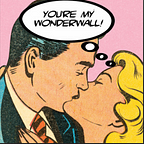The third chapter of Crystal Abidin´s Internet Celebrity: Understanding Fame Online (2018) deals several times with the concept of media gatekeeping and its responsibility to control and maintain the flow of information. An argument could be made that role of a gatekeeper is crucial in the contemporary journalistic environment. Editors ultimately determine what should be part of everyone´s reality. But should media control all the information flowing through space?
In our case, Abidin argues that outlets should curate their entertainment content, in this particular example even alter their approach to memes. It is her belief that media do not shelter people appearing in memes sufficiently and prioritise their financial interest or site traffic numbers to a genuine role of journalism (Abidin, 2018).
“If everyone is a journalist, then no one is,” (Biggins, 2016, para. 3) I remember reading during one of my modules. There is, of course, a great deal of truth to this statement. The need for a regulator in an era of fake news has never felt stronger. The public space nowadays lacks substance, undeniable facts, and expertise and all of that could be provided by the media who have the tools to ensure this.
I understand this. I would wish media had all this power as I work in the industry as an editor, however, it should be added that there should be no need to police every conceivable segment of our public space.
The notion of gatekeeping in communication was created in the 1940s by a German-American social psychologist Kurt Lewin (Lewin, 1943). In those days, filtering an information flow carried a completely different meaning, just like entertainment. The idea of analysing its influence was also quite scarce.
Today, we discuss memes and internet fame on an academic level as unique phenomena and fight rhetorical battles over which parts of our lives should remain free of control. To this day, I am still unsure whether we should limit one´s speech on social platforms. News sites can decide not to give space to controversial politics or regulate the discussion in a comment section — and frequently rightfully so — but should platforms devised around connecting its users and enabling debate police this very debate?
Nevertheless, what I certainly do refuse is extensive regulation of humour, amusement and entertainment. It is not the media´s job to assess the quality of the humour, closing the gates on some and welcoming others. While ensuring that their recipients have access to quality information, media also follow the basic prime instinct of notifying about intriguing events that would bring them views and revenue.
That is not wrong. That is only balancing one´s interests in this world. Furthermore, infotainment is the worst place where to start gatekeeping. It is relatively harmless in comparison to other atrocities happening so please, do not tell media how to cover memes and leave us the jokes.
References
Abidin, C. (2018). Internet Celebrity: Understanding Fame Online (Society Now). Emerald Publishing Limited.
Lewin, Kurt. “Forces behind food habits and methods of change”. Bulletin of the National Research Council. 108: 35–65.
